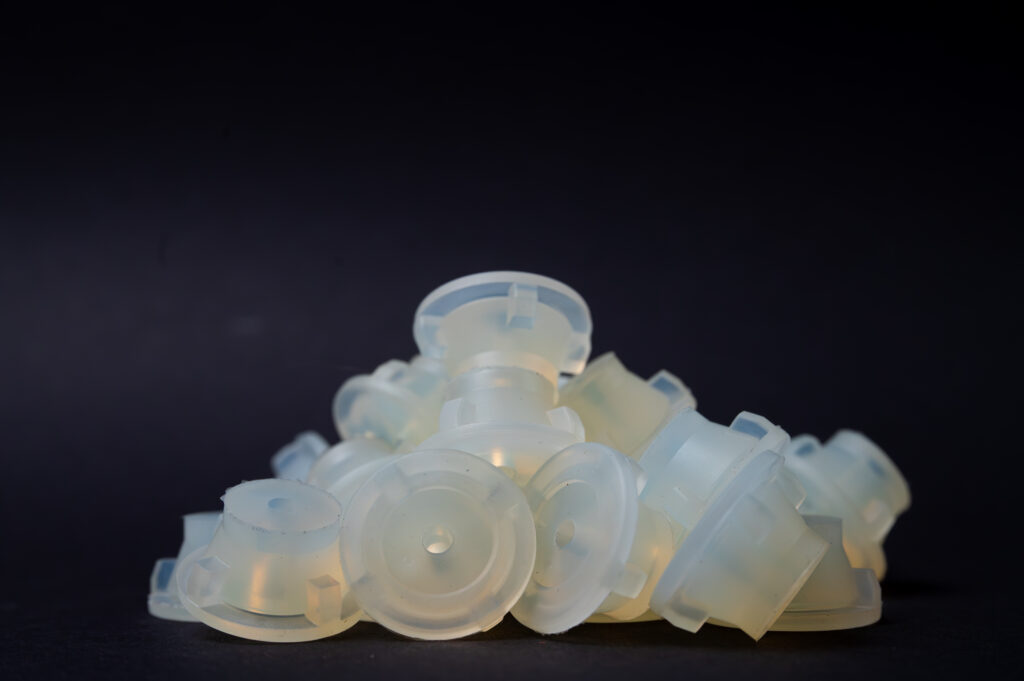Molded Silicone Parts – temperature-resistant and durable

Performance characteristics and properties
Molded silicone parts excel where other materials reach their limits. They maintain elasticity across a wide temperature range, resist UV radiation, ozone, and chemicals, and meet the highest hygiene requirements.
- Temperature resistance from −65 °C to +200 °C
- Special compounds with a significantly wider range
- Exceptional aging and weather resistance
- Chemical resistance to oils, greases, and aggressive media (FVMQ)
- Configurable as electrically insulating or conductive
- Biocompatible and physiologically safe for food and medical technology

Available Materials
We process a wide range of silicone elastomers to provide the ideal solution for every application:
VMQ – Silicone Rubber
High temperature, aging and weather resistance; excellent elasticity and UV stability.
FVMQ – Fluorosilicone Rubber
Combines silicone properties with additional resistance to oils, fuels, and chemicals.
MQ – Methyl Silicone Rubber
Excellent electrical insulating properties, high transparency, and stability at moderate temperatures.
PMQ – Phenyl Silicone Rubber
Excellent flexibility at low temperatures and remains elastic even in extreme cold environments.
PVMQ – Phenyl-Vinyl-Methyl Silicone Rubber
Combines low-temperature flexibility of PMQ with improved heat resistance and high elasticity across a wide temperature range.
Typical Components
- Dampers & buffers
- Molded hoses
- Sleeves
- Membranes
- O-rings
- Profiles
- Suction cups & grippers
- Silicone seals
- Valves

Do you have questions?
We have answers!
What are the advantages of molded silicone parts in comparison to molded rubber parts?
Silicones remain elastic under extreme temperatures and exhibit superior resistance to aging, weathering, and environmental stress, which makes them suitable for hygienic and medical applications.
